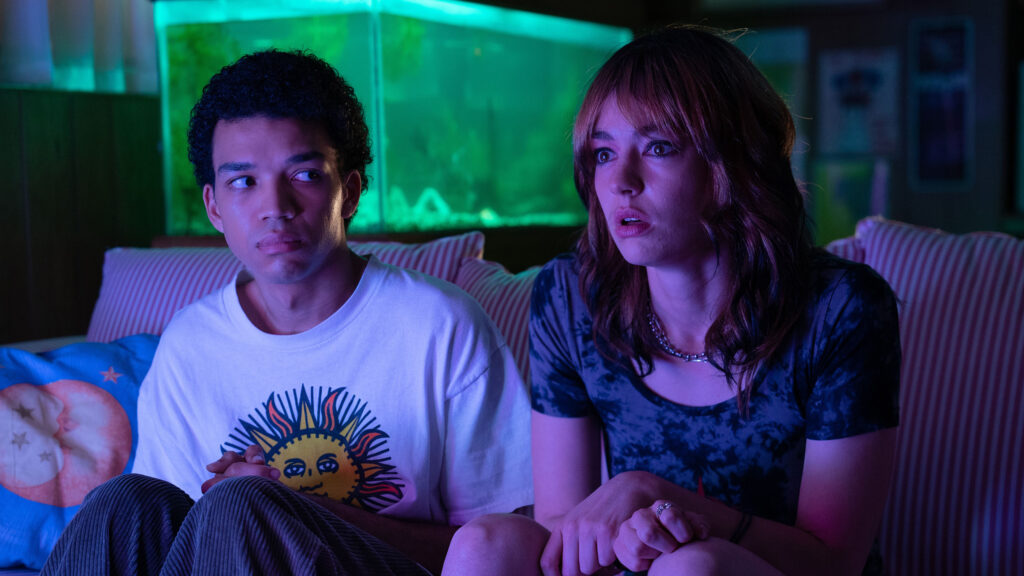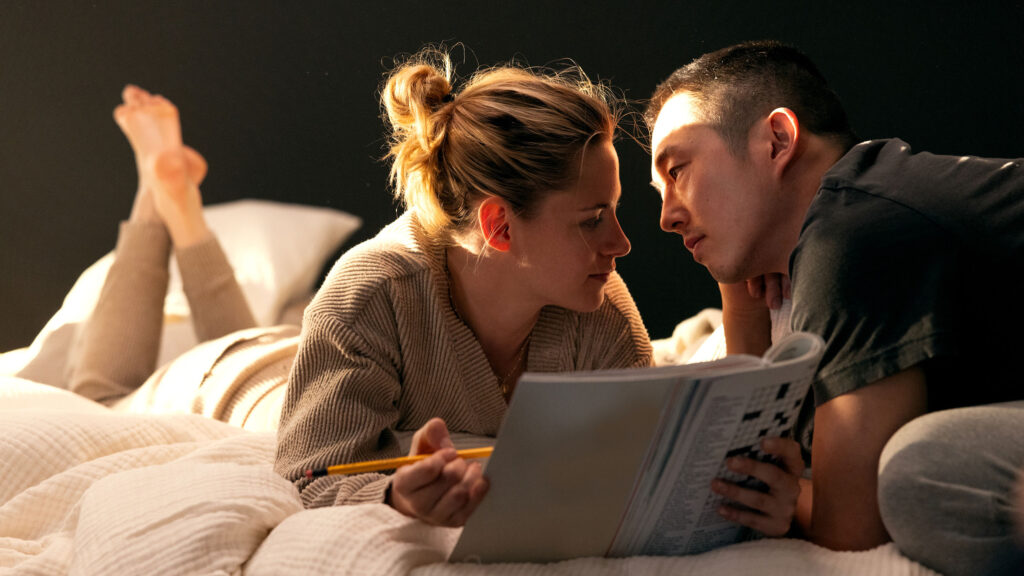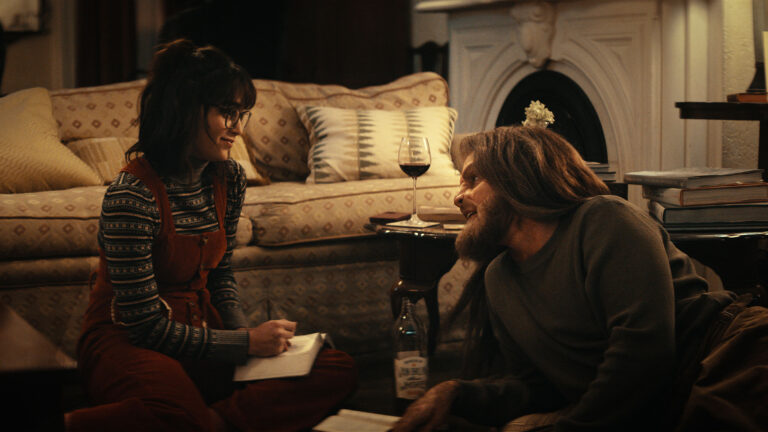Your Monster
Directed by Caroline Lindy
When aspiring stage actress Laura (Melissa Barrera) is dumped — via text, no less — by her playwright boyfriend Jacob (Edmund Donovan) while recovering from surgery, she moves back into her childhood home to piece her life back together. With her mother traveling the world, Laura expects to be alone in the house, and is shocked when she discovers that not only is someone else inhabiting the residence, but that someone else is the monster that frightened her as a child.
At first, Monster (Tommy Dewey) demands that Laura vacate the premises; she’s disrupting his routine and making him uncomfortable. But gradually, he begins to soften, and the two bond over a shared affection for classic films, Shakespeare and showtunes. Monster urges Laura to retake control of her life, and to throw up a big middle finger to Jacob by showing up to audition for the leading role in his upcoming musical, a part that was originally written for (and developed alongside) Laura herself. The ensuing chaos — and the gruesome finale which earns Your Monster a spot in Sundance’s Midnight category — is delightfully absurd.
Despite an admittedly silly premise, there’s a surprising amount of genuine warmth and sweetness in Caroline Lindy’s feature debut. Barrera and Dewey have such natural and easy chemistry that the notion of Laura falling in love with Monster doesn’t strain credulity; it helps that Dewey plays the role with charm and vulnerability, emoting through multiple layers of makeup and prosthetics. The final moments feel somewhat incongruous with the rest of the film, but they also afford us the opportunity to hear Barrera belt out a big musical number, so we aren’t complaining.

I Saw the TV Glow
Directed by Jane Schoenbrun
Jane Schoenbrun’s follow up to We’re All Going to the World’s Fair follows a pair of teenagers — shy, awkward Owen (Justice Smith) and fiercely independent Maddy (Brigette Lundy-Paine) — and their shared fascination with The Pink Opaque, a low-budget sci-fi series geared toward young adults. Raised in a conservative household where the notion of watching “a show for girls” evokes nothing but disgust from his father, Owen’s exposure to the series initially comes secondhand, via a detailed episode guide that he spots Maddy reading, but soon he’s lying about his whereabouts in order to join Maddy for watchalongs, and she begins supplying him with VHS recordings of her favorite episodes.
The sudden and abrupt cancellation of The Pink Opaque coincides with Maddy’s disappearance, an event that thrusts the already introverted Owen further into his shell. But when Maddy returns several years later with no explanation and begins insisting the series over which their friendship blossomed was more than just a work of fiction, Owen begins to questions all of those cherished childhood memories, not to mention the very nature of his own reality.
Schoenbrun’s sophomore effort is awash with Lynchian influence, but there’s so much style on display that the film’s substance feels lacking. The underlying themes of dysphoria, identity, shared trauma and acceptance are more than worthy of exploration, but the oppressive and cacophonous tone of I Saw the TV Glow‘s second half didn’t work for me; I found the experience borderline excruciating, an opinion which seems to be at odds with the general consensus among Sundance attendees. That said, I can recognize and appreciate that Schoenbrun is a talented filmmaker, and I look forward to seeing more of their work in the future.

Love Me
Directed by Sam and Andy Zuchero
Hundreds of years in the future and long after the fall of humanity, a lonely AI-powered buoy floating somewhere near the remains of Manhattan notices a satellite orbiting the Earth, sending out an occasional signal as it scours the ruined planet for any signs of life. The buoy responds to the signal, identifies itself as a lifeform, and is granted access to the satellite’s vast trove of historical data on the human race; fascinated by the notion of relationships, the buoy (christening itself “Me”) adopts the personality of an Instagram influencer named Deja (Kristen Stewart), and convinces the satellite (“Iam”) to assume the role of Deja’s husband (Steven Yuen).
Soon, Me and Iam are living together in a virtual space, represented by animated avatars crafted to look like their long-dead human counterparts. With Deja and Liam’s performative “date night” videos serving as the only measurement of what romance looks like, Me embarks on an endless cycle of emulation, recreating the contents of those videos in painstaking detail; Me’s avatar even speaks directly to the “camera,” despite the fact there’s no social media network and no audience. But while Me seems content to merely go through the motions, Iam embarks on a journey of discovery and self-actualization, longing for an authentic existence rather than just a hollow imitation.
With Love Me, husband-and-wife filmmakers Sam and Andy Zuchero have created a bittersweet and affecting examination of what it means to be alive, and to be in love, and how we all need to feel connection. This high-concept sci-fi romance will no doubt draw comparisons to Wall-E, and these aren’t unfair, especially in the early scenes where Me and Iam are only shown in their physical robotic forms, and communicate in halting, synthetic speech. But to reduce this film to those similarities would be as much a disservice as Me and Iam allowing their relationship to be constrained by remaining trapped within the confines of the videos they’re attempting to recreate; there’s genuine emotion beneath the surface, but you’ll never find it unless you’re looking.
Find more of our Sundance 2024 coverage at this link.

